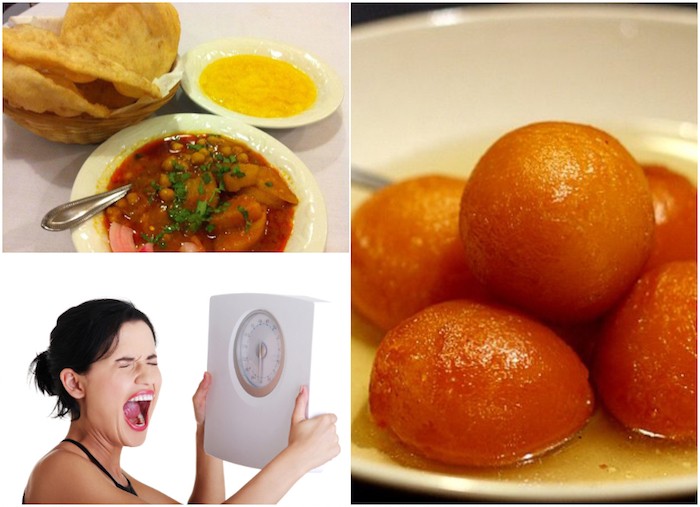
[ad_1]
In most Indian families, dinner is the most important meal of the day, as it is seen as a time for families to sit together, share experiences, and relate to the meal. Dinner is also a more elaborate meal compared to breakfast or lunch. Apart from that, for most individuals, dinner is when they find an opportunity to unwind after a long and stressful day at work. Therefore, dinner, seen as a time to relax and unwind after a long day, can become a vulnerable period for emotional eating. In such situations, people may turn to food to calm themselves or seek pleasure, which leads to overeating because they let the guard down and often go for seconds. Exercising back for seconds can lead to overeating, which leads to an excess of calories. A calorie surplus refers to a condition in which an individual consumes more calories than the body needs for maintenance and energy expenditure. When a person constantly consumes more calories than the body requires, the excess energy is stored as body fat and leads to weight gain over time. This is why it becomes imperative to find effective ways to stop yourself from going for seconds, especially during dinner time. In this post, we list 5 ways to stop yourself from going for seconds after dinner.


1. Don’t save all the calories for dinner.
Following the wrong type of diet can keep an individual hungry throughout the day, and during dinner time, may lead to eating all available foods, without considering portion sizes or nutritional needs. Throughout the day, individuals may skip meals, building up hunger by dinner time. This increased hunger can make it very difficult to practice portion control, causing people to consume larger amounts of food. It is a myth that you need to starve to lose weight without considering your body’s energy requirements. Eat at regular intervals during the day, eat enough food to help fuel the body, and also avoid overeating at dinner when the metabolism is at its lowest and the body slows down in preparation for rest.
2. Refrain from eating in front of the TV or the phone:
Distractions, such as watching TV, using electronic devices, or engaging in conversations during dinner time, can take away from the act of eating. When people are distracted and not paying attention, they will not feel full even with enough food in the first meal and may hold on for seconds without even realizing it. Eat your food in peace, without distraction, knowing exactly what type and quantity it is.

3. Don’t keep extra food on the table:
Walk away from all the food after you serve yourself the first time! An effective strategy to avoid overeating is to keep all leftover food away after serving yourself the first time (we recommend putting extra food in the fridge). By eliminating the temptation of food readily available on the table, you will be able to create a physical barrier and give enough time to assess whether you are really hungry and will need more food from extra meals. This simple act of hoarding leftovers can help break the cycle of automatic refilling your plate and overeating.
4. Eat slowly, chew food properly:
We all know that chewing well helps break down food into smaller particles and thus reduces the burden on your stomach, leading to more efficient digestion. This simple act encourages you to take your time and prevents you from rushing into your meal. Eating slowly is important because it takes about 20 minutes for your brain to receive signals of fullness and satiety from your digestive system. So, eat your food in peace, chew it slowly, and enjoy every bite. Also read: “18 great tips for creating a calorie deficit for weight loss.”
5. Eat From Small Plates:
Large plates can create an optical illusion that makes the portion size appear smaller. As a result, people may feel the need to fill their entire plate, leading to larger portions. Large plates and serving dishes can contribute to overeating as people may feel inclined to finish what is on their plate, even if it exceeds their actual hunger level and satiety signals. Swap your large meal plate for a smaller one because eating from a smaller plate can help prevent the tendency to linger for seconds by creating an optical illusion that makes the portion appear larger.
In summary, remember that a caloric deficit is important to achieving weight loss, as you consume fewer calories than you burn. Therefore, it is important not to let the guard down during dinner and to stay within your calorie limits without compromising on nutrition, and Rati Beauty diet plans Help you lose weight while keeping in mind your health and nutrition. Download the Rati Beauty app to access all of our diet plans.
18 great tips for creating a calorie deficit for weight loss
15 study-based hacks to keep extra calories away
[ad_2]